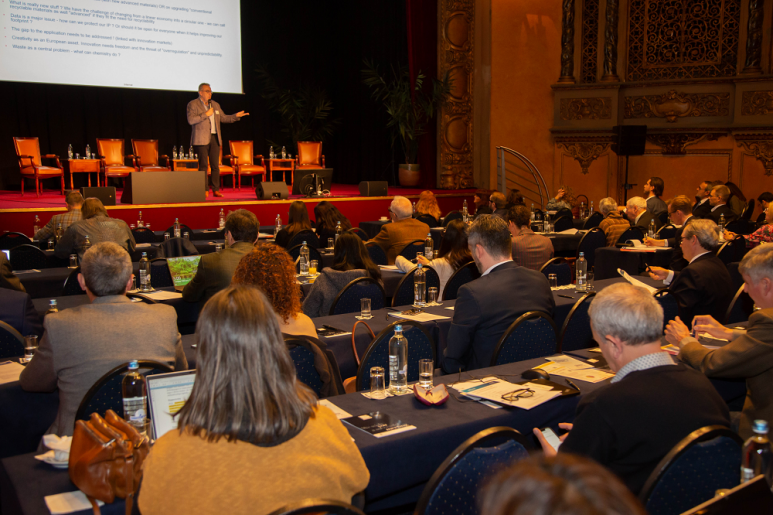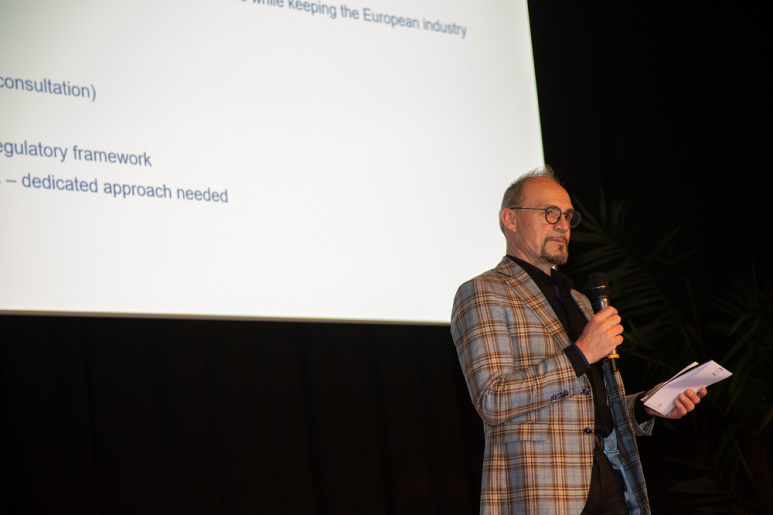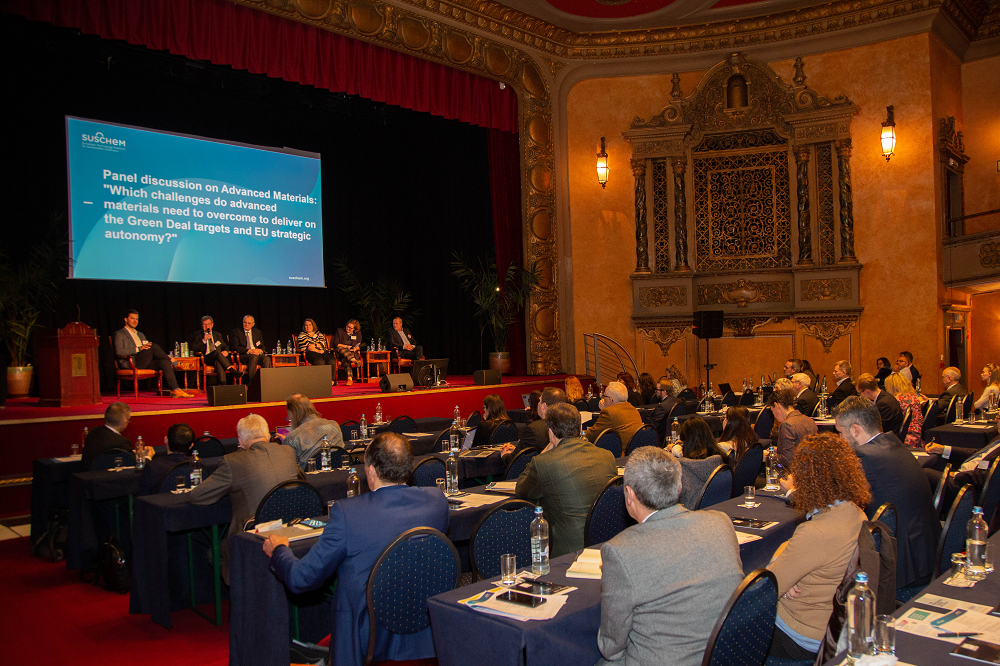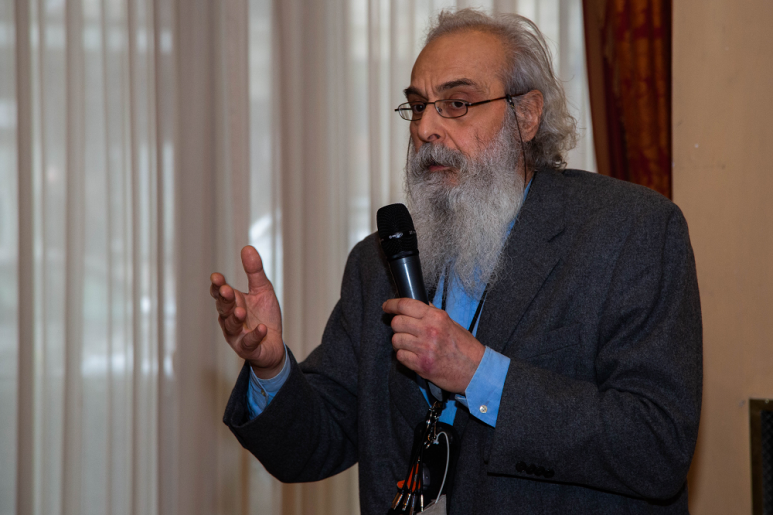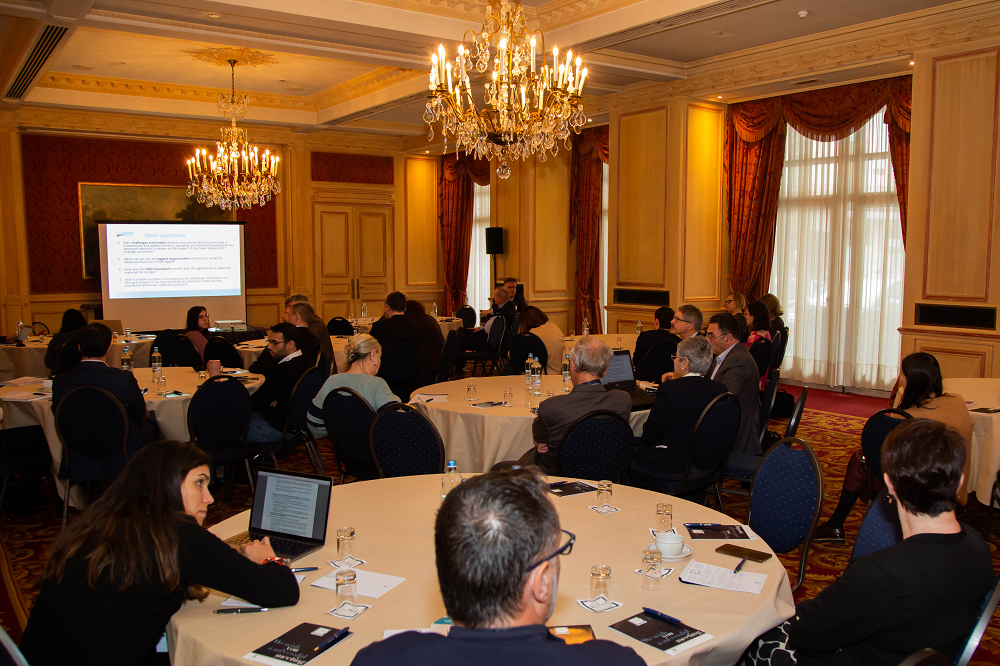SusChem organised its first in-person stakeholder event in Brussels since Covid-19. Experts gathered to discuss the Transition Pathway for the European chemical industry, the Safe and Sustainable-by Design (SSbD) assessment framework for chemicals and materials, and the Advanced Materials Initiative 2030. These important recent initiatives for the chemical sector present unique challenges to which the answer is clear: data is king in the journey towards 2050.
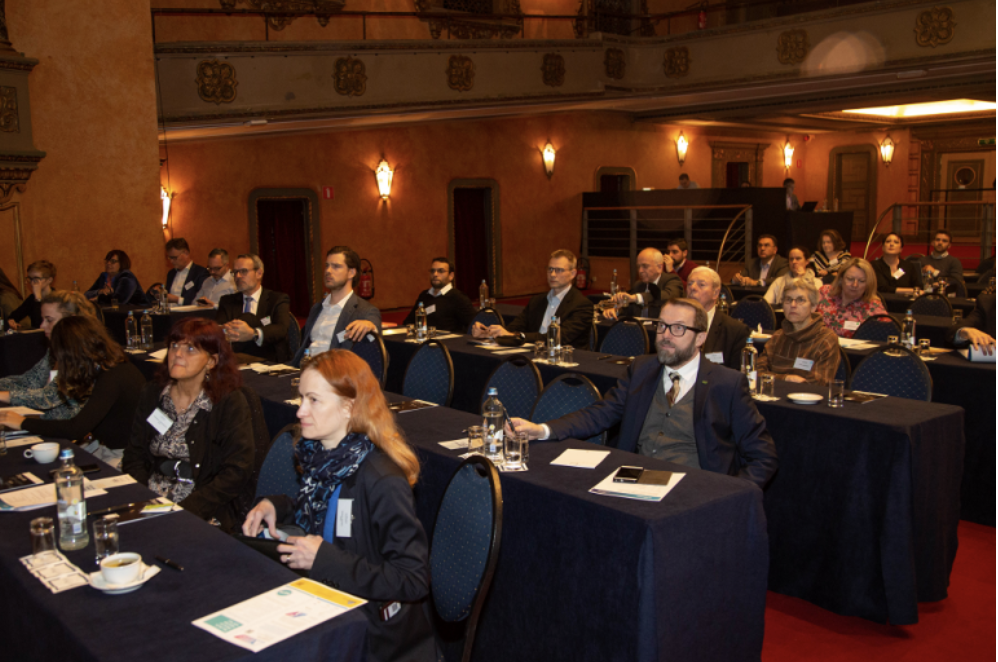
Transition pathway
SusChem has been actively working towards achieving the goals of the European Green Deal and the digital transition in collaboration with the European Commission’s Directorate General for Internal Market, Industry, Entrepreneurship and SMEs (DG GROW) and Directorate-General for Research and Innovation (DG RTD) for the past 3 years. The chemical sector faces a double twin transition and has a crucial role in the journey towards climate neutrality, circularity, digitalisation, and producing safe and sustainable chemicals. The Transition Pathway for the chemical industry was developed by 26 organisations alongside the Commission as a roadmap to help achieve these ambitious goals.
In his speech, Hans Ingels, Head of Unit for Bioeconomy, Chemicals and Cosmetics – European Commission – DG GROW, highlighted the importance of the chemical industry for the EU economy and the need to support its transition without losing its international competitiveness. As sustainable competitiveness becomes a challenge for the European chemical industry, the Transition Pathway is essential in ensuring that the industry is supported in its transition as enabler of a greener future, added Hans Ingels.
Safe and Sustainable-by-Design
Last year, an innovation-focused concept called the SSbD assessment framework for chemicals and materials, was introduced. This framework aims to facilitate the creation, advancement, manufacturing, and usage of chemicals and materials that provide necessary functions or services while reducing or preventing harmful effects on human health and the environment. The European Commission has defined SSbD as an approach to achieve this objective.
During a panel discussion on the implementation of the SSbD framework, speakers agreed that, to put it into practice, it’s crucial that member states, industry representatives, research organisations, and academic institutions collaborate closely, which means testing the approach in real-life innovation scenarios to see how it works and to identify areas of improvement. Yet,
”There is one challenge we will have to face and find a solution to: the data challenge. We need to work together and join forces to implement the SSbD framework better”, said Sofie Nørager, Deputy Head of Unit, European Commission DG for Research and Innovation – Prosperity – Industrial Transformation.
In addition to the data challenge, panelists also touched upon the limitations that SMEs face in terms of resources to carry out assessments following the SSbD framework. To implement it, expertise is a crucial aspect. “It’s essential to encourage SMEs to think about solutions and collaborate with larger companies to transfer knowledge in which they may be lacking”, said Emma Strömberg, Senior Researcher at the Swedish Environmental Research Institute (IVL) and Project Coordinator of the IRISS project.
Advanced Materials Initiative 2030
The afternoon session was dedicated to the Advanced Materials Initiative 2030 (AMI2030). Based on his research, Michael Carus, Founder of Nova Institute and Executive Manager in Renewable Carbon Initiative highlighted:
“The challenge for the next decade and maybe the biggest challenge since the Industrial Revolution for the chemical industry, is to replace 88% of fossil-based feedstock by other carbon sources.”
This is where advanced materials come into the picture. By definition, advanced materials are materials which are processed/developed with the purpose of developing improved performances by humans. Hence, development of advanced materials constitutes a great importance to replace the share of fossil-based feedstock to achieve carbon-neutrality. On this note, Jurgen Tiedje, Head of Unit DG R&I, European Commission, mentioned the need to accelerate research and innovation: ”That is a big issue, and we need to accelerate. We (Europe) are no longer a hidden and humble champion; we are becoming second class.”
In response to the question “What is needed to deliver on the Materials Manifesto and the implementation of the SSbD framework?”, participants agreed that a supportive and collective policy framework is needed to foster innovation for both applying the SSbD framework and the Advanced Materials Initiative.
They also touched upon different challenges: data availability, time and resources in particular to SMEs, and higher costs for consumers. Specifically on advanced materials, Philippe Jacques, from AMI2030, Managing Director at EMIRI/SusChem Board Member, highlighted that “we have the challenge of changing from a linear economy into a circular one – we can call recyclable materials as well advanced if they fit the need for recyclability”.
The way forward
The double twin transition of the chemical sector towards a more sustainable and circular economy, climate neutral, as well as the shift towards digitalisation, is a major challenge facing the chemical sector. Data and data infrastructure have emerged, during the discussions of the event, as essential components for the success of this transition. By digitising data and infrastructure, organisations can more easily manage and process their data, gain insights into their operations and customers, and make data-driven decisions that can help them achieve their sustainability and business goals.
The presentations of the event are available here.

